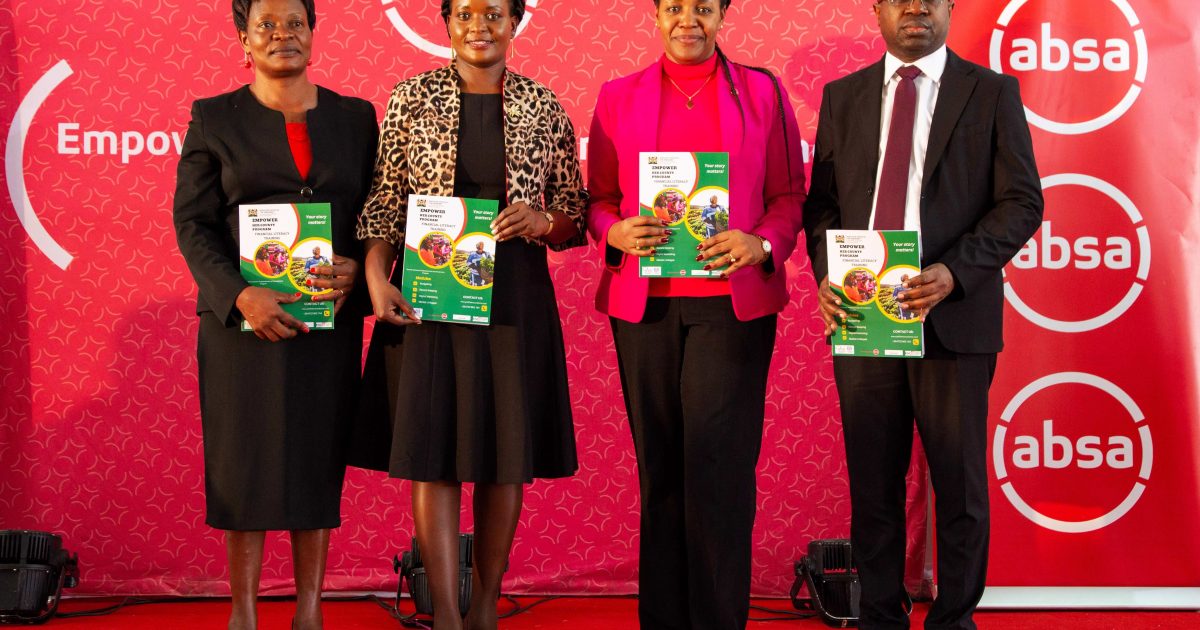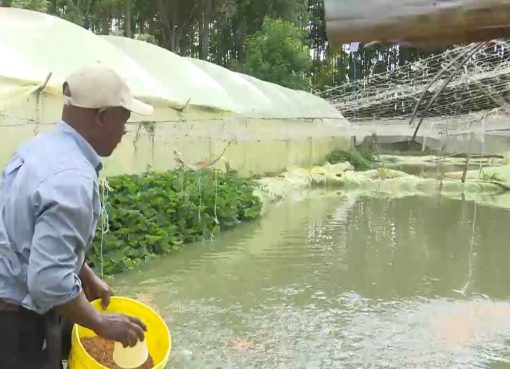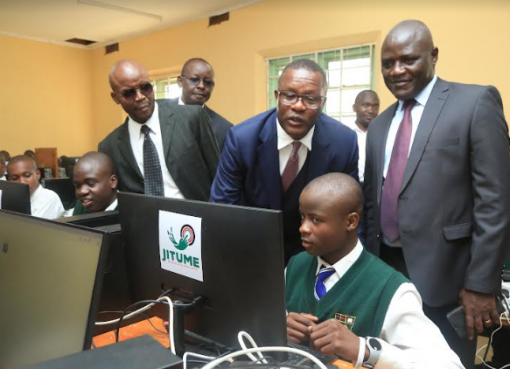Absa Bank Kenya in partnership with The Executive Office of the President, through the office of the Women’s Rights Advisor and Africa Guarantee Fund (AGF), have launched a Women’s Economic Empowerment and Investment Curriculum dubbed ‘Empower Her County Program’ to empower at least 30,000 women doing micro, small and medium-sized businesses across Kakamega, Bungoma, and Vihiga counties.
The Bank has also set aside Sh10 billion to support the growth of women in business across the country.
The programme seeks to address gender-based disparities and overcome economic challenges women entrepreneurs face to advance entrepreneurship by providing them with the tools and resources needed to upscale their businesses, promote resilience and thrive in today’s competitive business.
According to the Bank’s management, the curriculum will offer the ‘Start and Improve our Business (SIYB) module’ which is one of the largest global business management training programmes that was developed by the International Labor Organization (ILO).
Speaking during the launch at Masinde Muliro University, the President’s Women Rights Advisor Harriette Chiggai said the launch of Empower Her County Programme is a demonstration of the need to support women-led MSMEs.
“My office is partnering with private-sector entities to start up programmes that can reach women at the grassroots and the main reason why President William Ruto created the office of the Women’s Rights Advisor to show his commitment towards every Kenyan woman and girl,” she pointed out.
Chigai added that the programme entails training on business registration, taxation, marketing, savings and investment, budgeting and financial planning, bookkeeping, digitization of businesses, market linkages beyond counties, and cross-border training.
On her part, Absa Bank Business Banking Director Elizabeth Wasunna- Ochwa said that closing the gender gap through economic empowerment was key to achieving Sustainable Development Goals (SDGs) as a nation.
“When more women are empowered to create wealth, economies grow. This programme resonates with our corporate purpose to empower Africa’s tomorrow together, one story at a time, and is in line with our commitment to empowering over one million women entrepreneurs by 2025 by providing them with access to market information, markets for their products and services, coaching and mentorship, and business networks, as well as providing the capital required to scale their businesses to the next level,” she added.
According to a 2018 report by the International Labor Organization, nearly 60 per cent of women’s employment globally is in the informal economy, and in low-income countries, it is more than 90 per cent.
“Women constitute over 60 per cent of the 74 per cent of Kenyans living in rural areas, where poverty levels remain high. Women’s Empowerment Index 2020 by the Kenya National Bureau of Statistics implies that the empowerment rate of women in urban areas is 40 per cent, nearly double the rate of empowered women in rural areas, at 22 per cent over the same year, signifying the need for empowerment of women, especially at the county level,” noted Wasunna- Ochwa.
She said the financial literacy program, which is set to be rolled out in all 47 counties, aims to increase economic participation and entrepreneurship among 70 per cent of women and improve financial literacy and management skills for 90 per cent of women, including increasing their knowledge and uptake of the available government and private sector funding.
By Moses Wekesa and Jimnacington Chadiba





